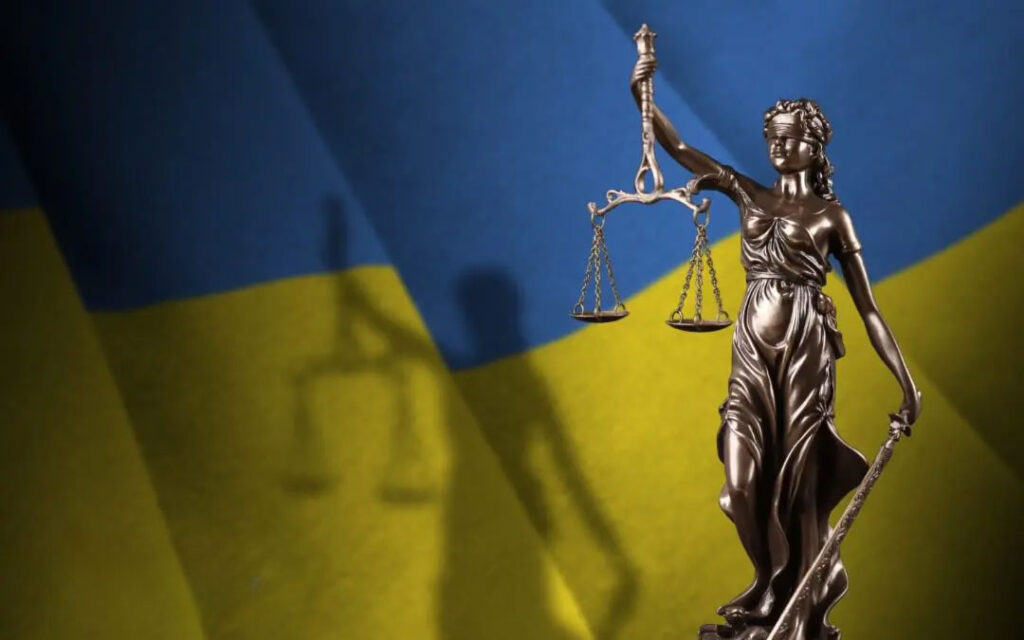The incursion of Russia into Ukraine’s territories has led to the commission of international infractions, potentially prosecutable under the prevailing international legal framework, bar the crime of aggression. Due to the International Criminal Court’s (ICC) lack of jurisdiction over the crime of aggression in Ukraine, and the International Court of Justice’s (ICJ) ruling preventing third countries from prosecuting top-tier government officials, Russian and Ukrainian courts emerge as plausible institutions for indicting the Russian leadership implicated directly in the conflict. Notwithstanding, the proposition of a novel, special international tribunal dedicated to the crime of aggression in Ukraine introduces complexities into international criminal jurisprudence, encompassing criticisms of selectivity and resource constraints. This dissertation endorses the indictment of Russian leadership in Ukrainian courts, a move that could delegitimize their political standing if ratified by a significant number of nations. Nevertheless, the efficacy of this option is contingent on international community endorsement.

Initiation: On the 24th of February 2022, Vladimir Putin, the President of Russia, initiated a military operation against Ukrainian forces with the intent of overthrowing the government in Kyiv. This assault, a violation of the UN Charter, elicited calls for legal inquiries to bring the culpable parties to justice. Although international criminal law offers a structure for the prosecution of crimes like war crimes, crimes against humanity, and genocide, addressing the crime of aggression introduces complications. This dissertation explores the legal alternatives for investigating the Russian incursion and discusses their implications for international criminal justice.
International criminal law and justice: International criminal law embodies a variety of legal elements, incorporating international law, comparative criminal law, national criminal law, and human rights law. The 1998 Rome Statute serves as an essential codification of international criminal law. Following World War II, the scope of international criminal law broadened beyond war crimes to encompass novel categories of international criminality. The genesis of the International Criminal Tribunal for the former Yugoslavia and the International Criminal Tribunal for Rwanda in the 1990s symbolized a new epoch in international criminal law. The ICC, inaugurated in 2002, is the world’s premier permanent treaty-based court dedicated to the investigation and prosecution of the most heinous crimes. Various trigger mechanisms activate the ICC’s jurisdiction. However, its jurisdiction does not extend to the crime of aggression in Ukraine.
Legal options in international criminal justice for investigating the Russian invasion of Ukraine: The ICC has embarked on investigations into war crimes, crimes against humanity, and genocide in Ukraine, but it does not have jurisdiction over the crime of aggression. The Joint Investigation Team (JIT), instituted by Eurojust, is another alternative, necessitating collaboration between national judicial systems, law enforcement agencies, and intelligence services. National courts, inclusive of those invoking universal jurisdiction, can indict serious international crimes. Still, the crime of aggression, which implicates political or military leaders, raises issues about the jurisdiction of national courts. The ICJ’s verdict in the Yerodia case conferred immunity on top-ranking government officials, restricting other countries’ jurisdiction to indict them for war crimes or crimes against humanity. While Russian and Ukrainian courts could potentially indict Russian leadership for the crime of aggression, a new ICJ verdict would be requisite to validate their legality.
Proposition of a new international tribunal for the crime of aggression in Ukraine: The concept of instituting a novel special international tribunal centered on the crime of aggression in Ukraine has been introduced. This tribunal, amalgamating Ukrainian law with international legitimacy, could address jurisdictional challenges. However, it would vie for resources with extant judicial systems, particularly the ICC, and could encounter criticisms of selectivity in international criminal justice. The tribunal’s establishment would also be expensive and demand additional personnel. In contrast, recognizing Ukraine as an EU member could amplify the legitimacy of Ukrainian court decisions, with European Arrest Warrants constraining Russian officials’ movements within the EU. This strategy could marginalize the political reputation of Russian leadership independent of a court ruling. Ultimately, international community endorsement and the expansion of the ICC’s jurisdiction can fortify international criminal justice.
Implications for international criminal justice and the war in Ukraine: Existing international law can prosecute crimes against humanity, genocide, and war crimes. National courts and the ICC can play a role in bringing lower-tier perpetrators to account. Nevertheless, the indictment of senior Russian government officials for the crime of aggression poses challenges. With international community support, Ukrainian courts may constitute the most feasible alternative. The inception of a new special tribunal introduces difficulties and could reinforce criticisms of selectivity in international criminal justice. Bolstered support for the ICC and its jurisdiction over the crime of aggression can contribute to international stability. The outcome of the Ukraine War and the management of international crimes in this conflict will delineate the future trajectory of international criminal justice.
